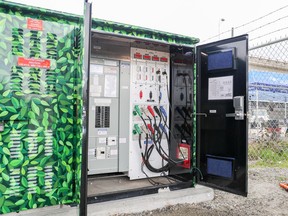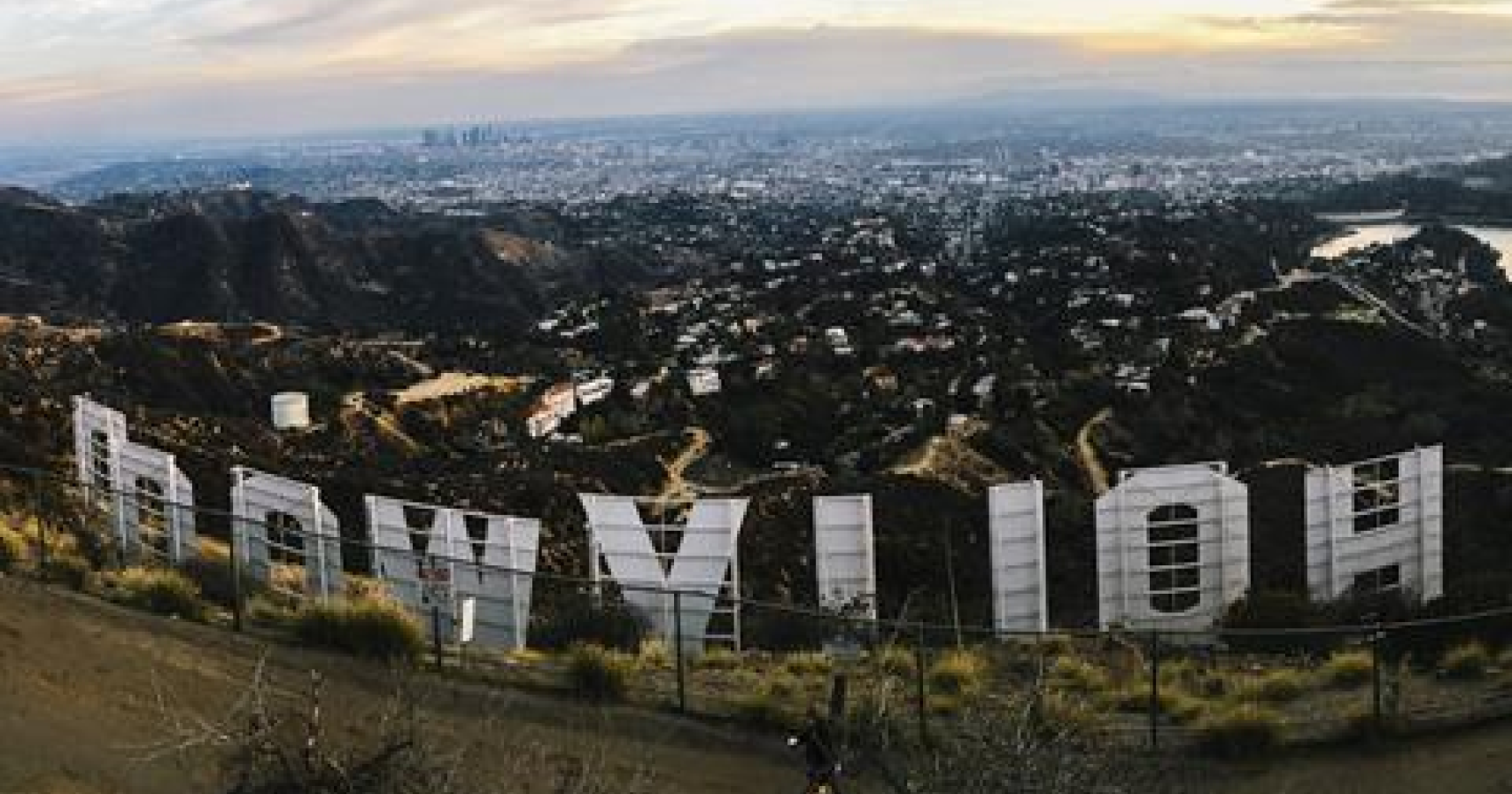Dozens of Canadian independent film and TV producers have formed a climate change coalition in B.C. to share ideas and promote more sustainability in the industry.So far, 40 companies have signed on with Producing for the Planet, a first-of-its-kind coalition in Canada to promote climate action accountability. It launched Friday at the Canadian Media Producers Association conference in Ottawa.
“These are all Canadian companies, and independent producers. So this is not Netflix. This is a coalition of homegrown producers,” said Marsha Newbery, founder and executive producer of Producing for the Planet.
It’s a passion project for Newbery, who is also an award-winning producer and vice-president of sustainability and business affairs at Thunderbird Entertainment. She founded Producing for the Planet last year and her goal is to make the Canadian media industry a leading force for positive environmental change.
“A production takes a small army. There’s a lot of crew to drive around, there’s power to run the set. I would say that travel and transport as a broad category is very high on the list of areas we as an industry need to do much better at. And some of that is going to depend on the infrastructure,” she said.
“We need more electric vehicles, we need battery power to catch up with industrial needs. We need the grid to be more electrified and clean energy in those grids.”
Starting in 2025, the coalition will prepare annual public reports on what the companies accomplished in four commitment areas: on screen, on emissions, on waste, and on collective action, such as what they have shared with or learned from other producers.
For example, onscreen action could range from telling stories about the climate crisis to having actors use reusable mugs for coffee, not drink out of plastic bottles or drive an electric car. Action on emissions could be switching to electric vehicles or serving only vegetarian meals on set.
“Are we reflecting sustainable behaviours on screen? Are characters eating vegetarian meals, are they driving electric vehicles or taking the bus? Are they recycling? Or maybe we make one of the character traits be somebody who cares about the environment,” she said.
Since these are independent companies, many are just starting out with their sustainability plans, while others have been developing them for some time, Newbery said. Each company will be reporting on different efforts made.
“Producers who are measuring their carbon footprints, they can give us those numbers. If they’ve told climate stories, tell us about them. Other companies could talk about how many climate stories were out there or how many art departments thought about using sustainable behaviours on screen,” she said.
“There’s been a lot of fantastic work done in our industry to green a film set but not often at the level at which a producer gets involved. Producers aren’t necessarily making those day-to-day, on-the-ground, on-set decisions. So I wanted to engage at the leadership level,” she said.“The climate crisis is urgent and we need to make changes. It’s everyone’s responsibility.”Producing for the Planet’s first project, launching in the spring, will be a digital interactive climate action tool kit that will provide resources and best practices for producers to provide leadership on climate action at both the production and corporate level.The coalition is founded and based in B.C. but involves independent companies from across Canada. While it may be the first coalition dedicated to producers taking action on the climate crisis, it’s not the first of B.C.’s efforts to go carbon neutral in Hollywood North.Last year, the city of Vancouver installed three clean-energy kiosks at popular shooting locations in northeast False Creek. The kiosks, which deliver hydroelectricity to film sets, are part of a plan to remove some of the 200 diesel generators used each year by film productions.

Film and TV productions, on average, produce around 500 metric tonnes of CO2 per production, or the equivalent of 108 cars on the road for a year, according to Green Spark Group, a Vancouver-based sustainability consultant, which calculates the carbon footprint of the productions it works on.
The industry, like many others, faces enormous environmental challenges: movie set waste; plastic food containers and water bottles; emissions from generators, food trucks and other vehicles; and micro plastics entering the ocean and atmosphere from fake snow and other special effects.
Producing the Planet aims to change that.
Who’s involved?
The full list of producers who have joined Producing for the Planet as of Friday’s announcement include: 9 Story Media Group, Amaze Films, Attraction, Banger Films, Blink49 Studios, Blue Ant Media, Boat Rocker Media, Cedar Island Films, Cineflix Media, Conquering Lion Pictures, Cream Productions, Eagle Vision, eOne Canada, Frantic Films, Good Measure Productions, Great Pacific Media, Idéacom International, IOM Media, Iylond Entertainment, Kickstart Entertainment, KOTV, Lark Productions, Muse Entertainment, New Metric Media, Nomadic Pictures, Omnifilm Entertainment, Panoramic Pictures, Pier 21 Films, Prairie Dog Film + Television, Quadrant Motion Pictures, Remembrance Pictures, Screen Siren Pictures, Seven 24 Films, Shaftesbury, Shut Up & Colour Pictures, Sphere Media, Thunderbird Entertainment, Wango Films, Wildbrain and Wind Sun Sky.
Producing for the Planet has received funding from the Canada Media Fund, the CMPA, Thunderbird Entertainment, Great Pacific Media, and Creative B.C.
Article originated in: The Vancouver Sun

Marsha Newbery, founder and executive producer of Producing for the Planet, a B.C.-based coalition of media producers that aim to make the film and television industry in Canada more sustainable. PHOTO BY PRODUCING THE PLANET /sun
















